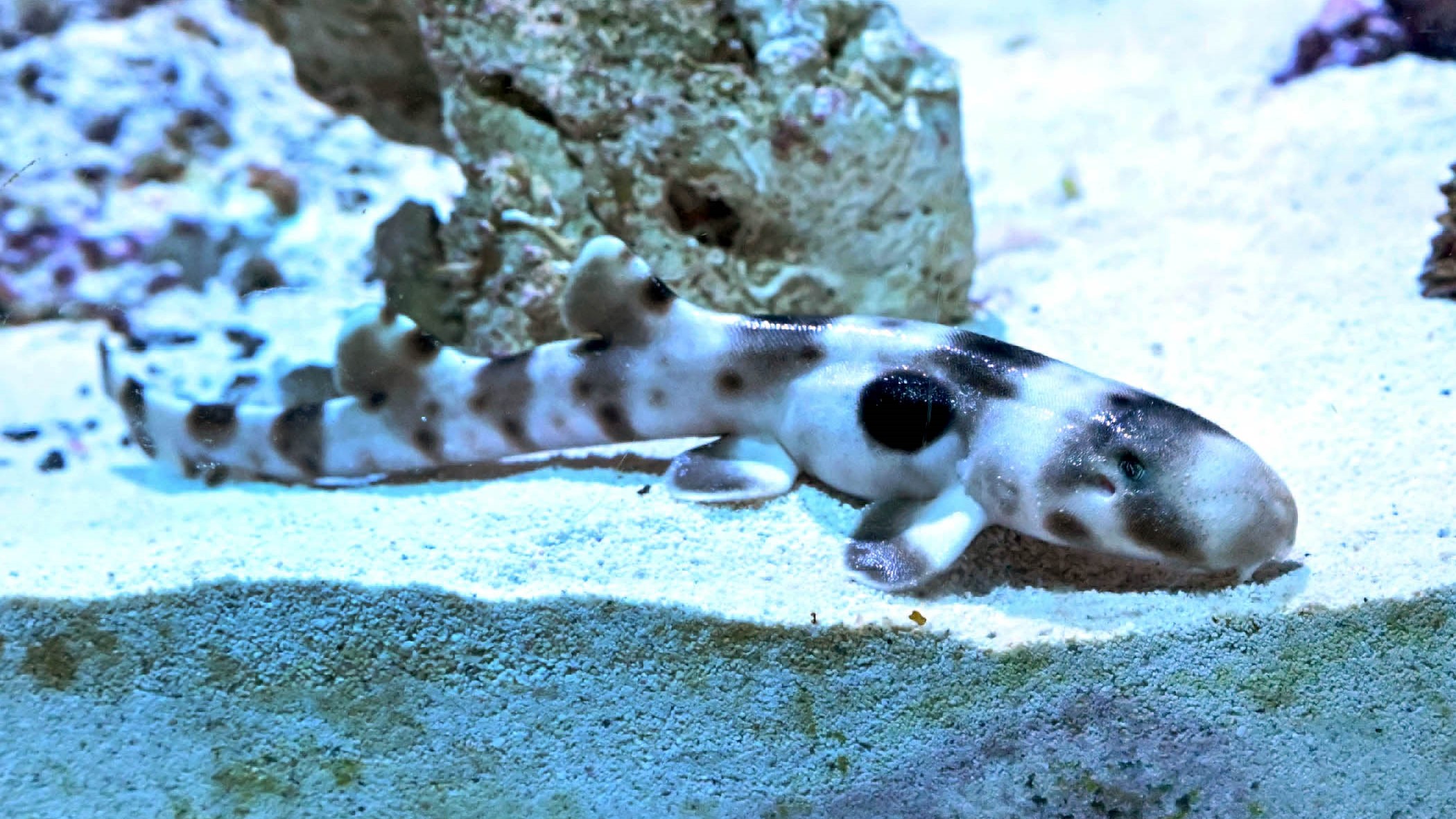Shark has virgin birth after no male contact for 4 years in Chicago zoo
An epaulette shark pup born in August at Brookfield Zoo hatched from an egg that was not fertilized by a male shark. It's the second time this species has undergone a virgin birth in captivity.

A female shark at Brookfield Zoo in Illinois has birthed a pup despite having no contact with a male for four years, the zoo announced on Nov. 1.
The "virgin birth" occurred on Aug. 23 after a five-month incubation period and is only the second known birth without fertilization reported for an epaulette shark (Hemiscyllium ocellatum) in captivity, according to a statement. Animal care staff kept the pup hidden from the public for two months for monitoring but have now said the 5- to 6-inch (13 to 15 centimeters) female shark will be on display in the zoo's "Living Coasts" section.
"This epaulette shark has an exciting hatch day story," Brookfield Zoo staff wrote in a Facebook post on Wednesday (Nov. 9). "What's most interesting is this embryo developed without the need for male fertilization. This process, known as parthenogenesis, is relatively rare for complex vertebrates like sharks."
Parthenogenesis, meaning "virgin creation" in Greek, is a type of asexual reproduction in species that would usually reproduce sexually. It has been observed in birds, sharks, lizards and snakes in captivity — and in June, scientists recorded the first ever virgin birth in a crocodile. The females of species capable of parthenogenesis can produce eggs that contain all the genetic information needed for reproduction. Mammals cannot reproduce asexually, because mammals, including humans, require certain genes to come from sperm.
Related: Pyjama sharks filmed mating in a giant, otherworldly underwater forest in 1st footage of its kind
The pup's mom arrived at Brookfield Zoo in 2019 from a New England aquarium, where the first known virgin birth of an epaulette shark was reported. Since then, the female has not been housed with a male. She reached sexual maturity last year at age 7, staff said in the statement, and she began laying two to four eggs every month.
One of these eggs developed into an embryo without being fertilized by a male's genetic material.
Sign up for the Live Science daily newsletter now
Get the world’s most fascinating discoveries delivered straight to your inbox.
"Shark pups produced parthenogenetically can be very delicate," Mike Masellis, a lead animal care specialist at Brookfield Zoo, said in the statement.
But the newborn appears to be healthy, he said. "We are happy to report that our epaulette pup has been eating well on her diet of finely chopped capelin [fish], minced squid tentacles and other finely chopped seafood. We are looking forward to guests being able to see the pup."
Epaulette sharks are mostly nocturnal and can grow to be 3.5 feet (1.1 meters) long, according to the Australian Museum. They live in the Great Barrier Reef off the coast of Queensland, Australia, from the northern tip of Cape York Peninsula to the islands and reefs of the Capricorn and Bunker Group. These slender sharks are named after large eyespots above their pectoral fins that make them appear larger than they are and look somewhat like the shoulder ornaments on some uniforms.
Epaulette sharks have been known to "walk" short distances across sandy seabeds — the species' preferred habitat — and to use their muscular pectoral fins to land on the seafloor, according to the statement.

Sascha is a U.K.-based staff writer at Live Science. She holds a bachelor’s degree in biology from the University of Southampton in England and a master’s degree in science communication from Imperial College London. Her work has appeared in The Guardian and the health website Zoe. Besides writing, she enjoys playing tennis, bread-making and browsing second-hand shops for hidden gems.










